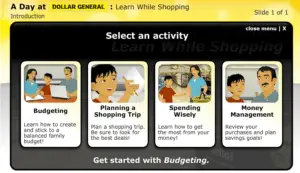I was catching up on my DVR shows this weekend, love me some Modern Family! Who saw the one where the Dunphy’s drop Haley off at college? Yep, I was in tears. Complete boo-hooing as I imagined leaving the Cupcake in a dorm room. I ran  upstairs to hug the Cupcake (who was almost asleep by the way) – which sent her into tears because I told her why I needed a hug (mistake – note to self: white lies are not all bad), and mark the date and time – she and I now have a pact that she won’t leave home to go to school. Whew! But that still means I have to pay for it. And maybe find a house in Baton Rouge.
upstairs to hug the Cupcake (who was almost asleep by the way) – which sent her into tears because I told her why I needed a hug (mistake – note to self: white lies are not all bad), and mark the date and time – she and I now have a pact that she won’t leave home to go to school. Whew! But that still means I have to pay for it. And maybe find a house in Baton Rouge.
In my last post I got on my soapbox about how I think kids should learn about money management from the moment they can hold a dirty little penny in their grubby little hands. Michael Garcia with Merrill Lynch shared his sage advice, not just as a financial advisor — but coming from the Dad of twin 4 year old girls — about how to set the stage for young kids to develop good financial habits.
If only they would stay 4 forever though! They’re going to grow up and that means your money conversation needs to mature with them.
This time I turned to Mark McLeland with Merrill Lynch in Fort Worth. He has a couple of kids in college so he’s lived through this process and offered a peek into the future. I wanted to know how to keep the Cupcake on the right track.
What’s particularly interesting about Mark is that he came to this parenting thing by way of an adoption agency – who forced him to define what his “job” as a Dad would be and what he would be doing to help shape his child’s future. He went through an exercise that encouraged him to frame his values, what opportunities he would create and what the higher education goals would be if it fits the needs of his children. If only we were all forced to do that like the hospital forces you to prove you can work a carseat with your newborn before you’re discharged…
I asked Mark, “At what point do your children learn about money and make decisions about money?” He shared a great analogy: Think about your child going to school to get a chemistry degree but never having touched chemicals. If they’re going to make mistakes, start early and small when the implications are not as impactful.
Mark shared some words of advice. Allowance is a VERY important part of the money education process. Their allowance program helps them understand that money is a choice. Spending a dollar on one thing is something you’re not spending on something else.
What worked for Mark’s family was to have his kids engaged in the savings process their whole lives. As parents, the McLelands expected their children to contribute to their college funds when they received cash gifts and when they earned money from working. As his kids grew older, he had them work in his office with him and showed them how their money would compound and go towards their college education. When it was time to choose a school, he had his kids make the decision about which school to attend given the financial ramifications of each choice. Now that’s a wise dad.
Yeah, so this whole college thing. I shuddered to ask the dreaded question, how much is college going to cost the Cupcake when she is 18? Mark referred me to collegeboard.org for the exact cost – which he warned can be overwhelming saying, “It’s more than most people can afford on their annual income, and most can’t fit it into the budget on a year to year basis either.”
“Houses, cars… they all have time flexibility. College – well, that’s kinda fixed. It’s not likely you’ll ask your 18 year old child to wait 5 or 6 years until you can afford it. For that reason college savings is tension filled. It’s looming and you know when it’s going to occur. That’s why planning now is so important,” Mark explained.
I think Mark “gets” why us civilians are so bad at saving. He explained that people consider savings in general, to be when they’ve paid off their non-discretionary expenses but really they should view college savings as an expense that has a systematic savings program attached to it.
But what if you’re afraid to admit that you haven’t started yet? Mark says that it’s never too little or too late to start savings for college. Realistically, saving for college doesn’t have to be an all or none situation. Anything you can save will off-set the expense when your child is ready to enroll. Think of it this way: the best time to plant a tree may have been 30 years ago, the second best time is today.
Two last points that Mark wanted me to share about college savings:
1) It’s simple, but it’s an A to B process. A = where you are now. B = goals you want to accomplish. Establish what values each parent has about a college education. Does that include graduate school? Do you have a school in mind? Are you going to ask your child to contribute? Will grandparents be involved? Explore all these areas to help you define the costs and that shapes “B.”
2) The other thing is, while it’s easier to talk with our parents about anything other than money, you really should talk with the grandparents. Often they consider your child’s education a financial priority and want to contribute, but they’re waiting for you to open up the conversation. They may not know what you’re plans are or if you even have any.
Mark recommends a book for kids around 8ish to help you set the stage for good money conversations. Check out the Ultimate Kid’s Money Book by Neale Godfreys, and Oprah’s own Jean Chatzky recommends The New Totally Awesome Money Book for Kids by Arthur Bochner. You can also do a search on Amazon for Books – “Teach Kids About Money” for a  long list of books to start those conversations and set the stage for saving. You might also want to check out this online interactive tool for kids from Dollar General. The online interactive game makes it fun and educational for both children and parents to learn basic budgeting skills. The easy-to-use game helps families start the conversation about money management and is a great tool for parents and children to learn together about how to make smart choices with money. Through the virtual experience of shopping in a Dollar General store, families will learn how to budget, plan a shopping trip, spend wisely and manage money.
long list of books to start those conversations and set the stage for saving. You might also want to check out this online interactive tool for kids from Dollar General. The online interactive game makes it fun and educational for both children and parents to learn basic budgeting skills. The easy-to-use game helps families start the conversation about money management and is a great tool for parents and children to learn together about how to make smart choices with money. Through the virtual experience of shopping in a Dollar General store, families will learn how to budget, plan a shopping trip, spend wisely and manage money.
Special thanks to the nice dads at Merrill Lynch for sharing their wisdom about teaching kids about money, and saving for college so you can ensure they learn even more when you’re not around. If you’re interested in talking with either of the financial advisors interviewed in these posts, their contact information is below.
Mark McLeland, (817) 877-9650, mark (underscore) mcleland (at) ml (dot) com
Michael G. Garcia, (214) 750-2075, michael (underscore) garcia (at) ml (dot) com
Ready to research colleges and their tuition costs? Here’s a useful database you can use to search and compare your options.




I couldn’t agree with this more. I used to work in a bank and I couldn’t believe how many young adults (and some not so young) would come in and ask how to write a check, or balance a check book, etc. I was shocked. Drew and Abby have a giant piggy bank and love to put their money in it. They both have a online savings account, but I plan on getting them in an actual bank they can go to also.
We’ve been given a couple of the Dave Ramsey books for kids (age 3-10)
http://www.daveramsey.com/store/prod140.html